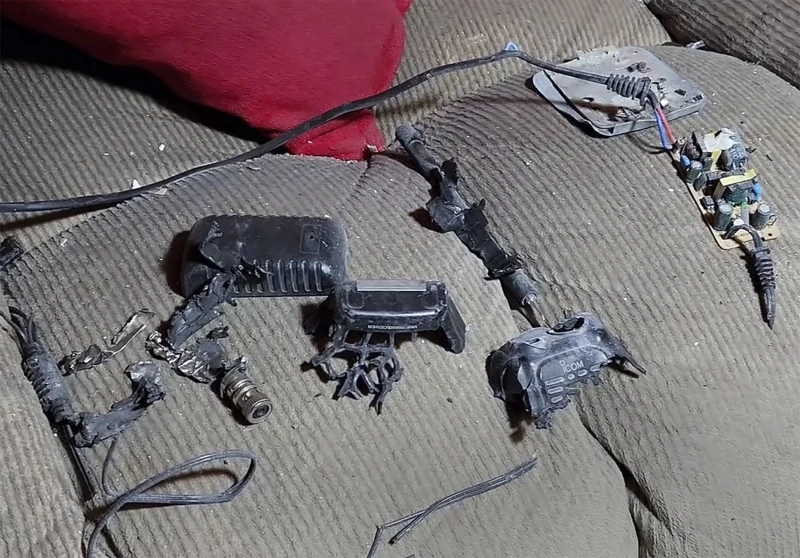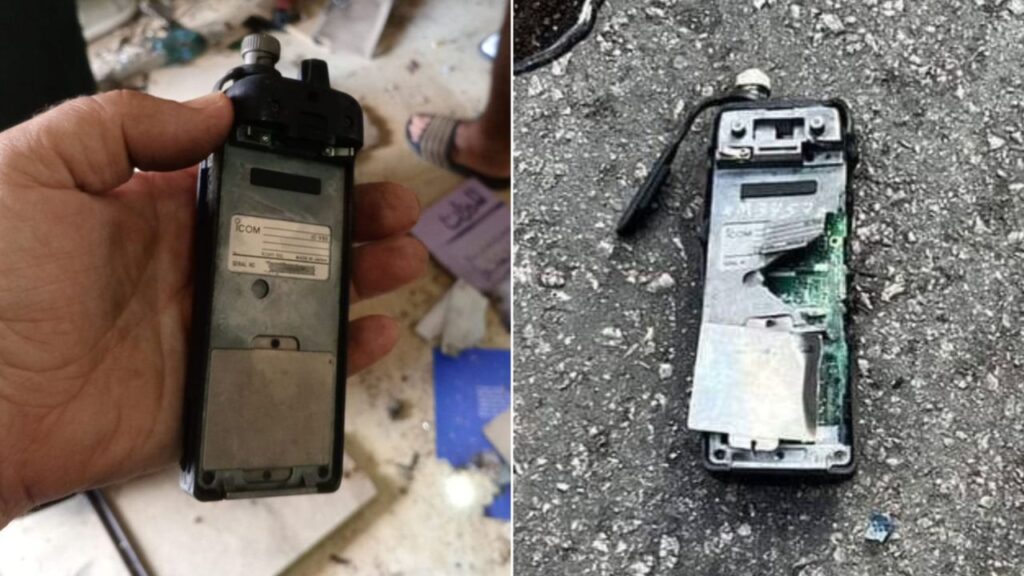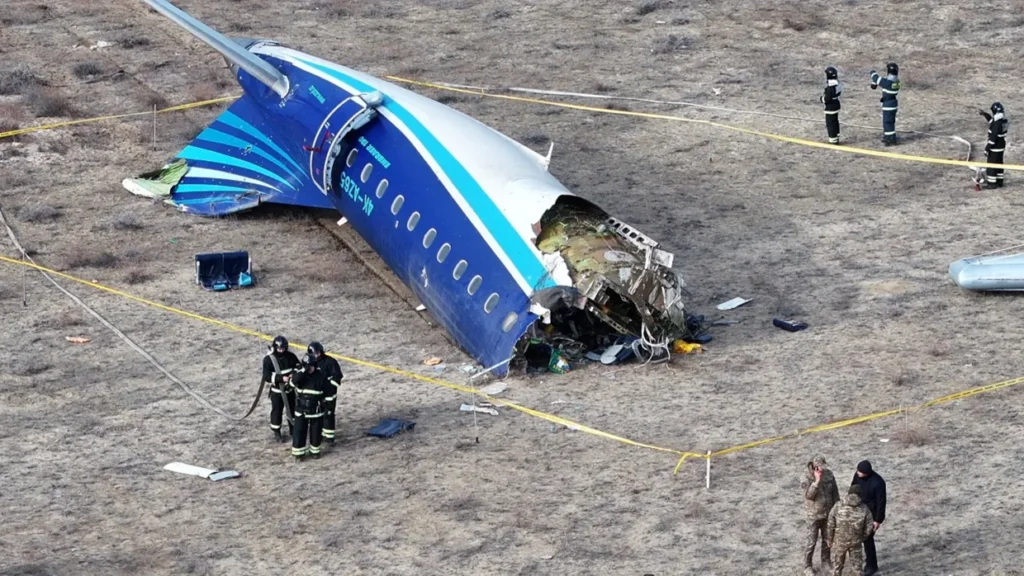Type and hit Enter to search
Experts in aesthetic surgery, dermatology, and beauty bring you the latest trends, research, and advice to help you make informed decisions about your appearance and health.
A web platform dedicated to aesthetic surgery, dermatology, and beauty, where expertise meets innovation, and your desires and needs become our mission. In a world where appearance and health go hand in hand, our platform leads the revolution, delivering the latest trends, research, and expert advice directly to you.
Our team consists of highly skilled professionals in the fields of aesthetic surgery and dermatology, committed to providing reliable information and guidance that will help you make informed choices about your appearance and well-being. We understand that every individual has unique needs and desires, which is why we approach each person with the utmost care and professionalism.
Powered by Aestetica Web Design © 2024
Israel-Hezbollah latest: Hezbollah fires dozens of rockets into Israel, after IDF strikes in Lebanon
Israel-Hezbollah latest
Israel Challenges ICC Arrest Warrants Against Netanyahu and Gallant
Israeli Foreign Ministry spokesperson Oren Marmorstein announced that the government has officially objected to the International Criminal Court (ICC) issuing arrest warrants in May for Prime Minister Benjamin Netanyahu and Defense Minister Yoav Gallant.
“Israel submitted two distinct legal briefs,” Marmorstein explained. “In one, the government argued that the ICC lacks jurisdiction in this case.”
In the second brief, Marmorstein said Israel criticized the ICC Prosecutor for violating the court’s statute by not allowing Israel to first investigate the allegations itself, adhering to the principle of complementarity.
He also emphasized that “no other democracy with an independent legal system like Israel’s has been treated in such a biased manner by the Prosecutor.”
Escalating Israel-Hezbollah Clashes: A Timeline of Recent Hostilities
Tensions between Israel and Hezbollah have reached a boiling point, with both sides engaging in heavy exchanges following a series of explosive events in Lebanon.
Here’s a brief overview of the recent developments:
- September 17: Thousands of pagers detonate across Lebanon and parts of Syria, leaving 12 dead and injuring thousands. Israel is widely suspected, but offers no response.
- September 18: Further explosions of hand-held and electronic devices occur, causing dozens of fatalities and hundreds of injuries.
- September 19: Hezbollah leader Hassan Nasrallah accuses Israel of crossing “all red lines,” declaring it an act of war. Cross-border strikes intensify, with Israel reporting strikes on 100 rocket launchers, while Hezbollah claims 17 attacks, killing two Israeli soldiers.
- September 20: Hezbollah fires 140 rockets into northern Israel, targeting an Israeli military barracks.
Key Updates for Today:
- A volley of rockets has been launched from Lebanon into northern Israel, according to the Israeli military, triggering warning sirens in northern regions.
- This follows extensive Israeli air raids on southern Lebanon, targeting positions held by Hezbollah, the Iranian-backed militant group.
- Israel’s military reported that its fighter jets struck over 100 rocket launchers and a weapons storage facility.
- Israeli Defence Minister Yoav Gallant declared that “a new phase of the war has begun.”
- Hezbollah’s leader, Hassan Nasrallah, has vowed retaliation after explosions involving the group’s communication devices killed more than 30 people and left thousands injured.
- Meanwhile, Bulgaria’s state security agency, DANS, clarified that none of the pagers involved in the explosions on Tuesday were produced, imported, or exported by Bulgaria.
- The White House has expressed concern over a possible escalation in the Middle East, with the UN Security Council set to address the crisis later on Friday.
Israeli Aircraft Aid in Safed Firefighting Efforts Amid Rocket Attacks
A volley of rockets has been launched from Lebanon into northern Israel, according to the Israeli military, triggering warning sirens in northern regions.
This follows extensive Israeli air raids on southern Lebanon, targeting positions held by Hezbollah, the Iranian-backed militant group.
Israel’s military reported that its fighter jets struck over 100 rocket launchers and a weapons storage facility.
Israeli Defence Minister Yoav Gallant declared that “a new phase of the war has begun.”
Hezbollah’s leader, Hassan Nasrallah, has vowed retaliation after explosions involving the group’s communication devices killed more than 30 people and left thousands injured.
Meanwhile, Bulgaria’s state security agency, DANS, clarified that none of the pagers involved in the explosions on Tuesday were produced, imported, or exported by Bulgaria.
The White House has expressed concern over a possible escalation in the Middle East, with the UN Security Council set to address the crisis later on Friday.
War on the Horizon for Lebanon
Hezbollah’s leader delivered defiant remarks towards Israel, but the timeline for further conflict remains uncertain.
Beirut, Lebanon – As Israeli jets roared low over Beirut, breaking the sound barrier, Hezbollah leader Hassan Nasrallah addressed the nation for the first time since a series of explosive attacks rocked the country. In these unprecedented assaults, pagers and radios detonated across Lebanon, killing both Hezbollah members and civilians, including two children.
The attacks came months after Nasrallah had warned his supporters to stop using mobile phones, suggesting they had been compromised by Israeli intelligence. The strikes also followed weeks of fiery rhetoric from Israeli officials, who hinted at expanding operations along the northern front with Lebanon.
The devastation was staggering. At least 37 were killed and nearly 3,000 wounded over two days of chaos. Since October 8, the death toll in Lebanon from clashes between Hezbollah and Israel has risen to over 600, with 100 civilians among the dead.
Nasrallah’s Response
Nasrallah’s Thursday speech began in a somber tone. He looked worn, acknowledging the scale of destruction: “This was a major terrorist operation, a genocide attempt, a massacre.” He admitted the attacks were an unprecedented blow to Hezbollah, but as he continued, his energy shifted. As is typical for Nasrallah, his speech was laced with provocations aimed directly at Israel and its leadership, particularly Prime Minister Benjamin Netanyahu.
“Netanyahu, we welcome your invasion… We see it as an opportunity,” he declared, his defiance barely contained.
Addressing Israel’s recent statement about wanting to secure its border to allow evacuated residents to return, Nasrallah vowed: “You will not bring those settlers back home. I promise you that.”
Despite the strong rhetoric, Nasrallah stopped short of specifying when or how Hezbollah would respond to the attacks. Those close to the group promised that retaliation was inevitable. Qassem Kassir, a Lebanese political analyst with close ties to Hezbollah, assured Al Jazeera that, “The response will be gradual, escalating, and painful.”
Still, some analysts argued that Hezbollah must be careful. They suggested that the group could not afford reckless defiance without risking further demoralization and casualties. “The recent Israeli attack revealed serious vulnerabilities in Hezbollah’s defense,” said Imad Salamey, a professor of political science in Beirut. “Hezbollah will need to delay its retaliation until it can regroup and reclaim the element of surprise.”
The last significant retaliation from Hezbollah came after Israel’s assassination of Fuad Shukr, a key Hezbollah commander. In that response, over 300 rockets were launched at Israeli bases. But as Karim Emile Bitar, a professor at St Joseph’s University in Beirut, noted: “That response did little to restore Hezbollah’s deterrence. The fragile equilibrium of terror between the two sides is no longer holding.”
A War Drama Unfolds
For many Lebanese citizens, the events of the past days felt surreal. “It’s like we’re living inside a Netflix series, or some dystopian reality,” said Bitar. The unprecedented scale and nature of the attacks have left many in Lebanon stunned, particularly as the strikes targeted Hezbollah’s communications. The question on everyone’s mind is whether an Israeli invasion is imminent.
While many experts downplayed the likelihood of an immediate ground invasion, they warned that this didn’t rule out a broader escalation. “There’s a real risk of the conflict expanding,” Bitar added. “Hezbollah and Iran are trying to figure out how to retaliate without giving Netanyahu the excuse to launch an all-out offensive.”
Seth Krummrich, a former U.S. special forces officer and now part of the Global Guardian risk management firm, said the pager strikes were a clear message to Hezbollah. However, he expressed skepticism about whether these attacks would achieve Israel’s goal of resettling displaced Israelis near the border. “The recent actions only push the warring parties further apart. What we’re seeing now is a drift away from any hope of a negotiated settlement.”
Technological Edge, But No Guarantee of Victory
If there’s one thing the last few days have proven, it’s that Israel holds a significant technological advantage over Hezbollah. Even Nasrallah himself acknowledged this in his speech, saying, “We cannot deny that the enemy has technological supremacy, especially with the backing of the United States and the West.”
Despite this, pro-Hezbollah groups on platforms like Telegram claimed minor victories, reporting cyberattacks that took down some Israeli municipal websites. But Seth Krummrich was quick to downplay these attempts, pointing out that technology alone doesn’t win wars. “The technological edge is important, but it’s not everything. Wars are still about people, willpower, and belief,” he said. “Both Israel and Hezbollah are deeply committed to their causes, and that’s what makes this conflict so dangerous.”
Krummrich’s final remarks were ominous: “Without some kind of diplomatic solution, things are going to spiral out of control. The determination on both sides is what concerns me. When two forces are so entrenched, the conflict only grows uglier.”
The exploding pager attacks have shown just how fragile the balance of power in the region is. With Hezbollah on the back foot and Israel ramping up its military presence, Lebanon teeters on the brink of full-scale war. But as much as Nasrallah’s speech signaled defiance, the exact nature and timing of Hezbollah’s response remain shrouded in uncertainty, leaving the entire region holding its breath.
Seventeen Killed in Latest Israeli Airstrikes on Gaza
Today, Israeli airstrikes claimed the lives of 17 people, with 9 casualties in Nuseirat, 6 in Gaza City, and 2 others succumbing to injuries from previous attacks.
Since the beginning of the conflict in Gaza last October, over 41,000 people have been killed and 95,551 wounded.
In Gaza City’s Zeitoun neighborhood, an earlier strike left two people injured. The Palestine Red Crescent Society (PRCS) has confirmed the rescue of both victims, posting footage of medics tending to the injured before rushing them to a hospital. One victim was seen bandaged and bloodied as they were placed on a stretcher for treatment.
- Israel Shifts Focus to Hezbollah: After months of intense operations in Gaza, Israel’s Defense Minister announced that the military is now redirecting its attention to the northern front to confront Hezbollah. The Israeli army chief has confirmed that the forces are prepared to launch strikes against the Lebanese militant group.
- A Second Day of Explosions: On Wednesday, fresh explosions rocked Lebanon, following the devastating pager bombings from the previous day. Tuesday’s blasts left at least 12 dead, including two children, throwing the country into turmoil.
- Impact on Cease-Fire Negotiations: U.S. Secretary of State Antony Blinken expressed disappointment and concern over the escalating violence, which threatens to undermine ongoing efforts to secure a cease-fire agreement in Gaza. The unexpected flare-up has added new complications to the already tense situation.
Footage of Explosions in Lebanon Circulates Widely on Social Media
Videos of explosions in Lebanon have been making rounds on social media, capturing the aftermath of the attacks. One particularly chilling scene, recorded from multiple angles, shows a funeral procession disrupted by a sudden blast. Smoke fills the air as a man collapses to the ground, and panicked screams follow.
The funeral has been confirmed to be taking place in Kfar Sir, a village located in the Nabatieh District in southern Lebanon. One of the videos that captures the exact moment of the explosion was taken from a Facebook live stream, with comments from viewers offering condolences to the people of Kfar Sir.
Further verification came from cross-referencing social media posts with satellite imagery, helping to authenticate the location of the funeral. Other footage shows smoke billowing from a phone shop in the city of Sidon, situated along Lebanon’s southwestern Mediterranean coast. Additional videos depict a fire in the Haret Hreik area of Beirut.
While these videos vividly document the destruction, the exact cause of the explosions remains unclear from the footage alone, leaving unanswered questions about what triggered the blasts.
Hezbollah Leader Set to Address Nation After Deadly Explosions
Hezbollah’s leader, Hassan Nasrallah, is expected to make a public statement at 15:00 BST regarding the recent attacks involving explosive devices. This will be Nasrallah’s first public remarks on the matter, as he has remained silent since the explosions began. However, on Wednesday, Hezbollah released a statement reiterating its continued support for Hamas in Gaza, and warning Israel of an imminent “difficult reckoning.”
The militant group also claimed responsibility for rocket attacks targeting Israeli artillery positions along the Israel-Lebanon border and the Golan Heights in retaliation for the explosive attacks. A Hezbollah official, speaking anonymously to Reuters, described the incidents as the group’s “largest security breach” since the escalation of the conflict following the October 7 attacks by Hamas on Israel.
Nasrallah, who has led Hezbollah since 1992, is a key figure in the organization’s history and has overseen its rise as a dominant force in Lebanon. His anticipated speech is expected to address the group’s strategy and response to the escalating tensions with Israel.
Death Toll from Wednesday’s Explosions Reaches 20, Reports Lebanon’s Health Ministry
The Lebanese Health Ministry has confirmed that the number of fatalities from Wednesday’s walkie-talkie explosions has risen to 20, with over 450 injured. The blasts came just a day after devastating pager explosions rocked the nation, killing 12 people, including two children, and injuring at least 2,750 in what is suspected to be an Israeli attack on Hezbollah’s communication devices.
According to western intelligence sources, many of the wounded from Tuesday’s attack suffered severe eye injuries or were even blinded when the pagers exploded. These blasts targeted Hezbollah’s low-tech communication systems.
Exploded Walkie-Talkies Likely Counterfeit, Says Icom Representative
A representative from the U.S. subsidiary of Icom, a Japanese walkie-talkie manufacturer, has stated that the radios that detonated in Lebanon were likely counterfeit and not genuine Icom products. In an interview with The Associated Press, Ray Novak, a senior sales manager at Icom America, expressed certainty, saying, “I can guarantee you these were not our products.”
The V82 model, which was reportedly involved in the explosions, was introduced more than 20 years ago and has since been discontinued. Originally popular among amateur radio operators and for emergency communication uses, such as weather tracking, the device has not been in production for years.
Novak spent much of the day responding to calls and dispelling misinformation surrounding Icom’s involvement. He demonstrated how easy it is to find counterfeit versions of the V82 model online, suggesting that the devices used in the explosions were likely knockoffs.

U.S. Military Reevaluates Mideast Force Positioning Amid Escalation
In response to the pager attack in Lebanon, Lt. Gen. Derek France, commander of U.S. air operations in the Middle East, canceled a scheduled appearance at a conference in Maryland to monitor the situation closely. A military official, speaking anonymously, stated that the attack prompted the U.S. Air Force to reevaluate how its forces are positioned across the region in case of potential retaliation.
The review comes shortly after the U.S. Navy relocated one of its aircraft carriers from the region, following a decision to temporarily bolster military presence with two carriers in the Middle East. The Biden administration had previously increased U.S. military forces in the region to help protect Israel from possible attacks by Iran and its allied militias, and to ensure the safety of U.S. personnel.
The U.S. maintains a significant military presence in the Middle East, including tens of thousands of service members, as well as additional ships and aircraft squadrons, with the aim of preventing the current conflict from escalating into a broader regional war.
On Wednesday, hand-held radios used by Hezbollah detonated across southern Lebanon, marking the deadliest day since the start of cross-border hostilities between the militant group and Israel almost a year ago. This incident followed a similar attack involving explosive pagers the previous day, intensifying already high tensions in the region.
Lebanon’s health ministry reported that 20 people were killed, and over 450 injured in Beirut’s suburbs and the Bekaa Valley during Wednesday’s blasts. The death toll from Tuesday’s pager explosions had already risen to 12, including two children, with nearly 3,000 others injured.
While Israeli officials remained silent, security sources claimed that Mossad, Israel’s intelligence agency, was responsible for both attacks. One Hezbollah leader called the incidents the most severe security breach the group had ever faced. These events come amid an 11-month conflict between Israel and Gaza, raising fears of a broader escalation, particularly along Israel’s northern border with Lebanon.
“We are entering a new phase of this war, one that requires great courage, resolve, and perseverance,” stated Israeli Defence Minister Yoav Gallant during remarks at an air force base. Meanwhile, Jordan’s Foreign Minister Ayman Safadi condemned Israel for driving the region toward a dangerous escalation on multiple fronts, warning of a potential regional war.
Although the United States denied any involvement in the blasts, a U.S. official disclosed that Israel had informed Washington on Tuesday that an operation in Lebanon was forthcoming, but provided no specifics. The operation’s nature caught U.S. officials by surprise.
One of the explosions on Wednesday occurred near a funeral for Hezbollah members killed during the previous day’s pager detonations. A Reuters reporter in southern Beirut observed Hezbollah members frantically removing batteries from remaining walkie-talkies to prevent further explosions, disposing of them in metal barrels. To evade Israeli surveillance, Hezbollah had shifted from mobile phones to lower-tech devices such as pagers and radios.
Responding to the multiple blasts, Lebanon’s Red Cross mobilized 30 ambulance teams across affected areas, including southern Lebanon and the Bekaa Valley.
Images of the exploded radios showed labels from the Japanese telecommunications company ICOM, resembling its IC-V82 model, which was discontinued 10 years ago. ICOM is investigating reports of its devices being used in the blasts, noting that its radios are exclusively sold through authorized distributors and that the company adheres to Japan’s export regulations. The company also mentioned the presence of counterfeit versions of its products in the market.
According to a security source, the hand-held radios were purchased by Hezbollah approximately five months ago, around the same time they acquired the compromised pagers.
Tuesday’s Explosions: Israeli Covert Operation and Aftermath
On Tuesday, sources revealed that Israeli spies remotely detonated explosives planted in a shipment of 5,000 pagers intended for Hezbollah before they crossed into Lebanon. This covert operation resulted in mass casualties. The UN Security Council is set to meet on Friday to discuss the incident, following a request from several Arab states.
Reports regarding the Iranian ambassador to Lebanon’s injuries varied. While Iran’s semi-official Fars news agency initially reported superficial injuries, The New York Times later revealed he had lost an eye and suffered severe damage to the other when a pager in his possession exploded. According to two members of the Iranian Revolutionary Guard, the severity of the ambassador’s injuries was far worse than initially stated.
In response, Iran’s envoy to the UN submitted a letter, stating the country “reserves its rights under international law to take necessary measures” following the attack.
Hezbollah’s Retaliation: Rocket Fire on Israeli Positions
On Wednesday, Hezbollah launched rockets at Israeli artillery positions, marking the first retaliatory strike since the explosions. The Israeli military reported no casualties or significant damage from the attack. According to Mohanad Hage Ali, deputy director at the Carnegie Middle East Center, Hezbollah seeks to avoid an all-out war, but pressure for a more significant response is growing due to the scale of the attacks.
The conflict between Israel and Hezbollah has intensified since the Gaza war erupted in October 2023, raising concerns of a broader Middle Eastern conflict involving the United States and Iran. The prior highest daily death toll in Lebanon from the ongoing hostilities was 11 deaths during Israeli shelling the previous month.
Israeli Military Movements and Lebanon’s Fragile State
In response to the escalating situation, Israel’s Defense Minister Yoav Gallant confirmed that troops and resources were being moved to the Lebanese border. This shift includes the transfer of the 98th Division, known for its elite commando and paratrooper units, from Gaza to the north.
Gallant remarked that Israel’s “center of gravity” was shifting to the northern front, indicating that more resources were being allocated to confront potential threats from Lebanon. A full-blown conflict between Israel and Hezbollah could have disastrous consequences for Lebanon, a country already facing multiple crises, including a financial collapse in 2019 and the catastrophic Beirut port explosion in 2020.
International Efforts and Future Conflict Risks
Amid rising tensions, diplomatic efforts by Egypt, Qatar, and the United States to negotiate a Gaza ceasefire have so far failed. The recent explosions and retaliation have complicated these efforts further. White House national security spokesperson John Kirby indicated it was too early to gauge how the attacks would affect ongoing ceasefire negotiations.
Hezbollah, backed by Iran, remains steadfast in its support for Hamas in Gaza and has vowed further retaliation against Israel for what it called the “pager massacre”. A delegation from Hamas visited those injured in the blasts at hospitals in Lebanon on Wednesday, according to Lebanon’s state news agency NNA.
The explosions followed a series of targeted assassinations of Hezbollah and Hamas leaders, which have been attributed to Israel since the onset of the Gaza war. With tensions reaching new heights, the risk of an all-out regional war looms large, threatening to pull in major global powers.
Hamas Official: Israel to Blame for Lebanon Attacks’ Consequences
Senior Hamas leader Izzat al-Rasheq accused the Israeli government of bearing full responsibility for the aftermath of what he described as a “relentless assault on Lebanon.” His statement followed the explosion of hand-held radios used by Hezbollah in southern Lebanon and in the suburbs of Beirut on Wednesday.
Israel’s Iron Dome Responds to Missiles Amid Northern Tensions
On Wednesday afternoon, Israel’s Iron Dome intercepted missiles near the country’s northern border with Lebanon, shortly after air raid sirens warned of incoming threats. The area near the border saw brushfires, further heightening the region’s tensions as conflict escalates.
Hungary Denies Role in Explosive Devices Used in Lebanon
The Hungarian government issued a statement clarifying that the devices involved in the explosions in Lebanon were never on Hungarian soil. This followed claims from Gold Apollo, a Taiwanese pager manufacturer, that the model involved in the Hezbollah attack was produced by Budapest-based BAC Consulting, though Gold Apollo emphasized it only licensed its brand to BAC and had no role in the production of the explosive pagers.
Calls and emails from Reuters to BAC went unanswered on Wednesday. However, Hungarian government spokesman Zoltan Kovacs stated on Facebook: “These devices were never in Hungary.” He also reassured that Hungary will fully cooperate with investigations while maintaining that the issue does not pose a national security risk.
Israel Informed the U.S. Before Yesterday’s Operation in Lebanon
Israeli officials notified the U.S. that they were planning an operation in Lebanon yesterday but provided no specifics about what they intended to do, according to three CNN sources familiar with the matter. The sources indicated that U.S. Secretary of Defense Lloyd Austin and his Israeli counterpart, Yoav Gallant, discussed the topic yesterday morning.
“The fact that no details were given about what the operation would involve meant that U.S. officials were kept in the dark until reports of hundreds of pager explosions surfaced shortly afterward,” the sources said.
CNN has learned that Israel was behind the attack, which escalated tensions in an already volatile region. The operation was reportedly a joint effort by Israeli intelligence agency Mossad and the Israeli military. The Lebanese government condemned the attack, calling it “criminal Israeli aggression.”
UN Security Council Meeting Following Walkie-Talkie Explosions
According to the BBC, the UN Security Council will convene by the end of the week to discuss the walkie-talkie explosions in Lebanon.
The Hezbollah Walkie-Talkie Explosions
The carnage in Lebanon has escalated dramatically, as yet another wave of explosions has targeted Hezbollah fighters, this time through thousands of walkie-talkies rigged with explosives. Coming just a day after the infamous pager blasts, which killed and injured thousands, the walkie-talkie detonations have left nine dead and hundreds wounded, further destabilizing a region already on the brink of catastrophe.
As smoke plumes filled the skies of Beirut and southern Lebanon, the second wave of explosions shook the nation. Witnesses and security sources reported that the detonations were triggered almost simultaneously, targeting Hezbollah fighters and even mourners at a funeral for three members killed in the previous day’s pager explosions.
The devices that exploded were walkie-talkies—standard tools of communication that had been part of Hezbollah’s emergency communication network. Security sources confirmed that these devices were purchased around the same time as the compromised pagers. Hezbollah, which had been using them in its military preparations against Israel, never suspected that these devices would be used against their own fighters.
“We never thought our communication tools could be turned into weapons against us,” a Hezbollah survivor of the explosion commented, standing amidst the wreckage. The coordinated attack is being hailed as one of the most significant breaches of Hezbollah’s security infrastructure.

The Aftermath and Widening Carnage
The death toll from the walkie-talkie explosions was smaller than the previous day’s pager blasts, but the psychological impact was equally devastating. With three dead and hundreds injured, including mourners at a funeral, the explosions caused chaos across Lebanon’s south and Beirut.
Hospitals in the capital, already overwhelmed by the mass casualties from the pager blasts, were pushed beyond their limits. Medical staff worked around the clock as aid organizations scrambled to deliver supplies to a nation teetering on the edge of a humanitarian crisis.
This latest incident follows a series of Israeli military operations and cross-border skirmishes that have heightened tensions between Hezbollah and Israel. While Israel has neither confirmed nor denied responsibility for the attacks, officials in Lebanon and Hezbollah leadership have labeled the explosions as acts of mass murder orchestrated by Israeli intelligence.
What are Pager Blasts and Walkie-Talkie Explosions?
The explosive events that have rocked Lebanon involve everyday communication devices, turned into deadly weapons. The pager explosions, which occurred just a day before the walkie-talkie blasts, involved thousands of booby-trapped pagers distributed throughout Hezbollah’s network. These devices were reportedly tampered with before being delivered to Hezbollah fighters, who were unaware of their lethal modifications.
The walkie-talkie bombs were designed similarly. The devices, typically used for military and operational communication, were rigged with small quantities of high explosives, detonated remotely or via signal triggers. According to weapons experts, such modifications would require high-level knowledge of both telecommunications and explosives—a hallmark of Israeli intelligence operations.
“We’re looking at an operation that was incredibly sophisticated. This isn’t something a local militia could have pulled off,” said a regional analyst. The walkie-talkie explosions are seen as an extension of the same clandestine warfare technique used with the pagers, but with far-reaching implications for military tactics in the region.
Allegations Against Israel and Mossad’s Involvement
Accusations against Israel and its intelligence agency, Mossad, have been mounting, with Hezbollah and its ally Iran blaming the country for orchestrating both the pager and walkie-talkie attacks. Though Israel has officially remained silent, sources “with knowledge of the operation” have allegedly confirmed Israel’s involvement in planting the explosive devices.
These allegations align with theories that Israeli intelligence services infiltrated Hezbollah’s supply chain, embedding explosive devices in communications equipment intended for use in a future war with Israel. These covert actions, coupled with Israel’s advanced technological capabilities, have led to speculation that these were preemptive strikes designed to weaken Hezbollah before a larger confrontation.
“The logic of making these devices explode is to carry out a preemptive strike before a major military operation,” stated UN Secretary General Antonio Guterres, echoing concerns about an impending escalation in violence between Israel and Lebanon.
The International Response and Rising Tensions
The international community has reacted with alarm as the events in Lebanon threaten to spark a wider regional conflict. Jordan’s Foreign Minister, among other officials, accused Israel of pushing the Middle East to the brink of a regional war. Meanwhile, Hezbollah has vowed retaliation, and already launched rocket strikes against Israeli artillery positions, marking the first significant Hezbollah-Israel engagement since the explosions.
These retaliatory strikes have heightened fears that this conflict will expand, potentially drawing in more international players like Iran and the United States. The possibility of a broader Middle East conflict is becoming more real, with analysts warning that the situation could soon spiral out of control if diplomatic efforts do not intervene.
“Hezbollah wants to avoid an all-out war, but given the scale of the attacks, pressure is mounting for a stronger response,” said Mohanad Hage Ali, a scholar at the Carnegie Middle East Center.
The Future of Lebanon and the Middle East
As Lebanon grapples with the aftermath of these devastating attacks, the country’s future looks increasingly uncertain. Beirut’s hospitals remain at full capacity, and the country’s political landscape is more fragile than ever. The attacks have exposed a massive breach in Hezbollah’s security, raising doubts about the group’s ability to defend itself against such sophisticated operations.
The larger concern, however, is the looming possibility of a full-scale war between Israel and Hezbollah, one that could drag the entire Middle East into a bloody, protracted conflict. The United Nations and various international bodies are scrambling to mediate between the parties, but with tensions already at fever pitch, their efforts may come too late.
For now, Lebanon is left to reckon with the devastation caused by these explosive attacks, while the world watches, anxiously awaiting the next move.






